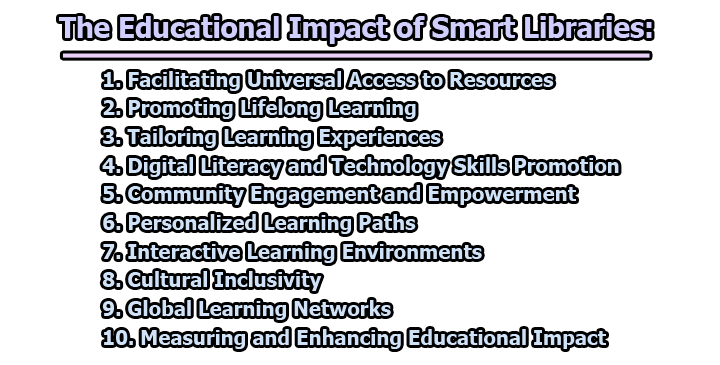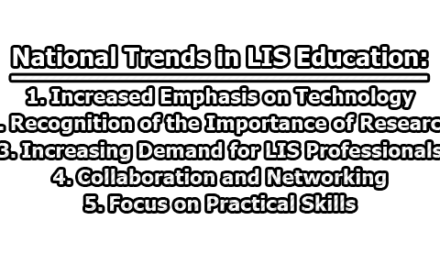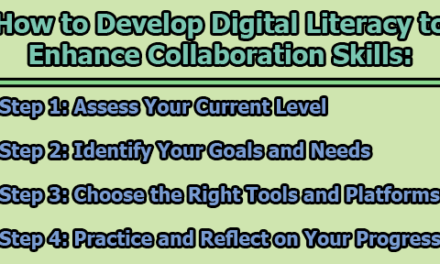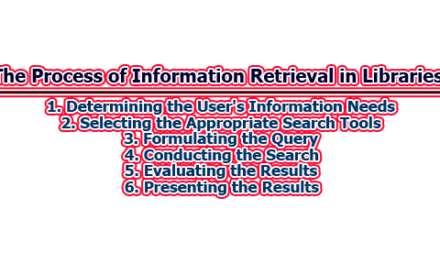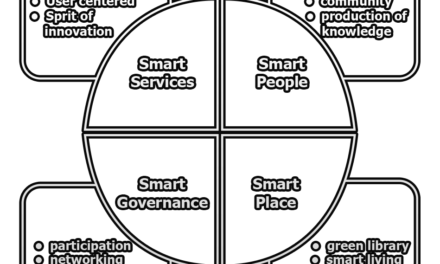The Educational Impact of Smart Libraries:
In an era marked by technological advancements and digital transformation, smart libraries have emerged as dynamic educational hubs that redefine the traditional concept of libraries. Beyond serving as repositories of knowledge, these modern libraries leverage technology to revolutionize the educational landscape. This article delves into the multifaceted educational impact of smart libraries: shaping the future of learning.
1. Facilitating Universal Access to Resources: The advent of smart libraries has revolutionized access to information by leveraging technology to overcome geographical and physical constraints. Through digital catalogs, online databases, and innovative lending platforms, smart libraries ensure that patrons can access a diverse range of resources, including e-books, audiobooks, and multimedia archives. This transformation fosters inclusivity, allowing individuals to engage with educational content from anywhere at any time, irrespective of their location or mobility.
2. Promoting Lifelong Learning: Smart libraries have evolved from being static repositories to dynamic centers for lifelong learning. Offering programs such as technology classes, coding workshops, book clubs, and author talks, these libraries stimulate curiosity and support personal and professional development. By embracing a mindset of continuous learning, patrons recognize that education extends beyond formal academic structures, enriching their lives with diverse learning experiences.
3. Tailoring Learning Experiences: The integration of advanced data analytics and personalized recommendations enables smart libraries to tailor learning experiences to individual patrons. Through an analysis of borrowing history, preferences, and interests, libraries provide relevant resources, programs, and services aligned with the unique learning goals of each patron. This personalized approach enhances the educational experience, addressing the diverse learning preferences within communities.
4. Digital Literacy and Technology Skills Promotion: Smart libraries play a pivotal role in promoting digital literacy and technology skills within communities. Offering technology workshops, digital literacy programs, and access to computers and internet connectivity, these libraries empower individuals with the knowledge and skills needed to navigate the digital landscape effectively. This proactive approach contributes to bridging the digital divide, ensuring that community members have the tools required to participate fully in the digital age.
5. Community Engagement and Empowerment: Beyond their traditional roles, smart libraries have become vibrant centers for community engagement and empowerment. Activities such as voter registration drives, citizenship workshops, community forums, and public lectures strengthen social cohesion and empower community members to actively participate in local, national, and global discussions. These initiatives transform smart libraries into essential community assets, fostering a sense of belonging and empowerment. The community engagement facilitated by smart libraries actively contributes to building resilient and connected communities, emphasizing their significance beyond conventional educational institutions.
6. Personalized Learning Paths: Smart libraries utilize technology to tailor learning experiences based on patrons’ interests and needs. By analyzing borrowing history, preferences, and interests, libraries recommend relevant resources, programs, and services, creating a personalized learning journey for each individual. This personalized approach ensures that patrons receive guidance and support aligned with their unique learning goals, fostering a more effective and engaging educational experience.
7. Interactive Learning Environments: Evolving into interactive learning environments, smart libraries offer spaces for collaboration and exploration. Through the integration of technology, they provide interactive exhibits, virtual reality experiences, and collaborative spaces that encourage hands-on learning and creativity. These environments enhance the overall educational experience by providing dynamic and engaging platforms for patrons to interact with information and ideas.
8. Cultural Inclusivity: Smart libraries prioritize cultural inclusivity by curating diverse collections that represent various perspectives, backgrounds, and voices. This inclusivity fosters a rich learning environment, allowing patrons to explore and appreciate different cultures. By providing access to a broad spectrum of cultural resources, smart libraries contribute to promoting tolerance, understanding, and cultural diversity within the community.
9. Global Learning Networks: Leveraging technology, smart libraries enable patrons to connect with global learning networks. Through virtual events, webinars, and collaborative projects, patrons can engage with individuals and ideas from around the world. This global connectivity broadens perspectives, expands the scope of learning experiences, and promotes a sense of interconnectedness among patrons. Smart libraries become conduits for global collaboration and learning, transcending geographical boundaries.
10. Measuring and Enhancing Educational Impact: Smart libraries employ data analytics to measure and enhance their educational impact continually. By analyzing engagement metrics, patron feedback, and learning outcomes, libraries adapt and refine their offerings, ensuring they remain responsive to the evolving educational needs of their communities. This commitment to assessment and improvement ensures that smart libraries continue to be effective educational resources, providing relevant and impactful services to their patrons.
It is apparent that smart libraries demonstrate a commitment to continuous improvement by measuring and enhancing their educational impact. Data analytics, patron feedback, and learning outcomes are actively utilized to adapt and refine library offerings, ensuring they remain responsive to the evolving educational needs of their communities.
As we navigate the complexities of the 21st century, smart libraries stand as dynamic and essential pillars in the pursuit of knowledge, lifelong learning, and community empowerment. Their ability to leverage technology, personalize learning experiences, and actively engage with communities positions them as transformative entities that redefine the traditional notion of libraries. Smart libraries play a vital role in shaping a future where education is accessible, inclusive, and continuously evolving, contributing to the enrichment of individuals and the resilience of communities.

Library Lecturer at Nurul Amin Degree College

